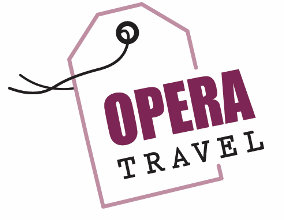Destinations
Discover your next great adventure

Visit South Korea - The Land of the Morning Calm
General Information
- Capital: Seoul
- Area: 100,363 km²
- Population: Approx. 52 million
- Currency: South Korean Won (KRW) (~0.0007 EUR)
- Languages: Korean (English is spoken in major tourist areas)
Visa Requirements
All visitors to South Korea must:
- Hold a passport valid for at least six months from the date of entry.
- Have an onward or return ticket.
- Show proof of sufficient funds for the stay.
- Some nationalities qualify for visa-free entry for up to 90 days.
- Others need to apply for a visa via a South Korean embassy or consulate.
Visa-Free Entry for Citizens of:
USA, Canada, UK, Australia, New Zealand,
European Union Countries, Japan, Singapore, Malaysia, Thailand, and more.
About South Korea
South Korea is a country that blends ancient traditions with modern technology.
From bustling metropolises like Seoul to serene countryside landscapes, South
Korea offers a rich cultural and travel experience.
Climate
South Korea has four distinct seasons:
- Spring (March - May): Best time for cherry blossoms.
- Summer (June - August): Hot and humid, ideal for beach trips.
- Autumn (September - November): Beautiful autumn foliage.
- Winter (December - February): Cold with snow, perfect for skiing.
Main Attractions
- Seoul – A vibrant capital with skyscrapers, palaces, and street food markets.
- Busan – Coastal city famous for beaches, seafood, and scenic hikes.
- Jeju Island – A volcanic island known for waterfalls, lava caves, and
beautiful beaches.
- Gyeongbokgung Palace – A historic palace in Seoul with traditional
ceremonies.
- DMZ (Demilitarized Zone) – A unique experience at the border with North
Korea.
- Bukchon Hanok Village – A preserved area showcasing traditional Korean
houses.
- N Seoul Tower – Offers stunning panoramic views of Seoul.
- Changdeokgung Palace – A UNESCO-listed historical site with a secret garden.
- Lotte World & Everland – Famous theme parks perfect for families and
thrill-seekers.
- Andong Hahoe Folk Village – A traditional Korean village reflecting past
lifestyles.
Transportation
South Korea has an advanced and efficient transportation system:
- KTX (Korea Train Express) – High-speed train connecting major cities.
- Seoul Metro & Bus System – One of the best public transit networks in the
world.
- T-money Card – A convenient prepaid transport card for buses and subways.
- Taxis & Ride-Hailing Apps – KakaoTaxi and Uber are available.
- Domestic Flights – Useful for traveling to Jeju Island and remote areas.
Must-Try Food & Drinks
Food:
- Kimchi – Fermented spicy cabbage, Korea’s most iconic dish.
- Bibimbap – Mixed rice with vegetables, egg, and chili paste.
- Bulgogi – Marinated grilled beef, a Korean BBQ staple.
- Samgyeopsal – Grilled pork belly, often eaten with lettuce wraps.
- Tteokbokki – Spicy rice cakes found in street food stalls.
- Jjajangmyeon – Black bean sauce noodles.
- Sundubu Jjigae – Spicy soft tofu stew.
Desserts:
- Bingsu – Shaved ice dessert with toppings like red beans and fruit.
- Hotteok – Sweet-filled Korean pancakes.
- Yakgwa – Traditional honey cookies.
Drinks:
- Soju – Korea’s most popular alcoholic beverage.
- Makgeolli – A traditional rice wine with a sweet and tangy taste.
- Banana Milk – A beloved Korean drink found in every convenience store.
- Korean Green Tea – A staple in Korean culture.
- Sikhye – A sweet rice drink, often served after meals.
Travel Tips for South Korea
1. Entry & Visa: Check visa requirements before traveling.
2. Best Time to Visit: Spring for cherry blossoms, Autumn for foliage.
3. Transportation: Get a T-money Card for easy public transport access.
4. Local Etiquette: Bowing is a common greeting; remove shoes before entering
homes.
5. Money: Credit cards are widely accepted, but cash is useful in markets.
6. Food: Try Korean BBQ, kimchi, and bibimbap.
7. Shopping: Visit Myeongdong, Dongdaemun, and Insadong for souvenirs.
8. Safety: South Korea is very safe; CCTV is common in public areas.
9. What to Avoid: Speaking loudly on public transport is considered impolite.
10. Cultural Experiences: Watch a K-pop performance, visit a temple stay, and
wear a hanbok (traditional dress).
Summary
South Korea offers a dynamic mix of tradition and modernity, with experiences
ranging from high-tech cities to serene temples.
Whether you’re visiting for K-pop, history, food, or natural beauty, South
Korea will leave you mesmerized.
